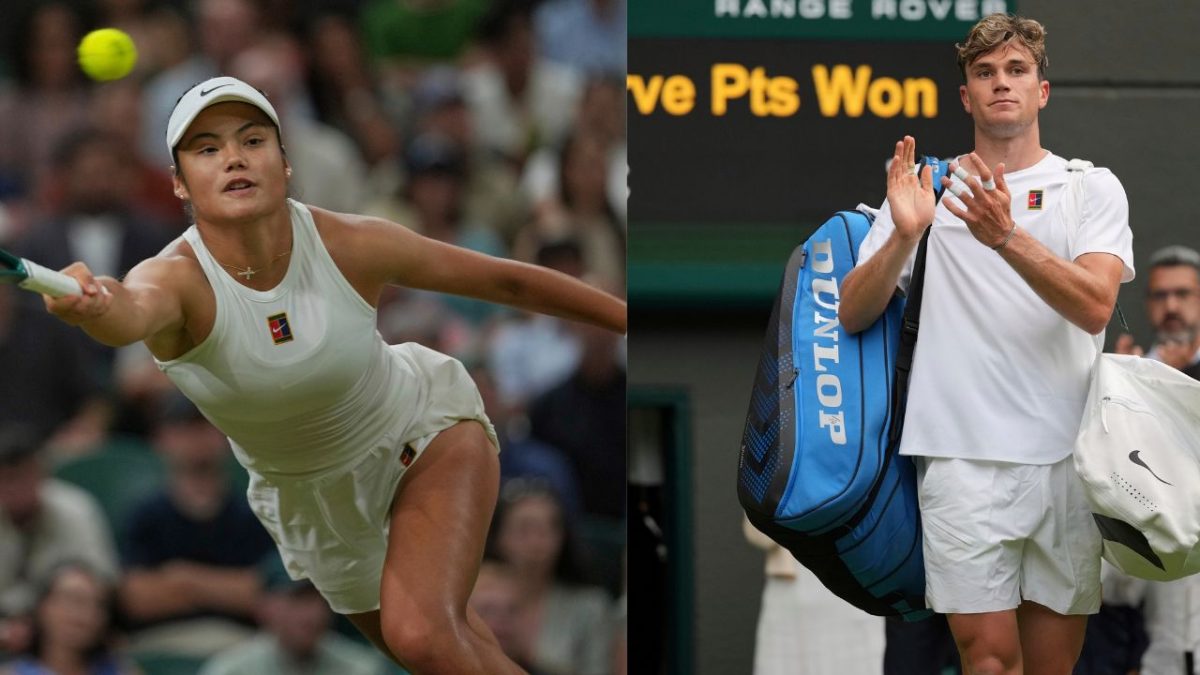The introduction of electronic line calling at Wimbledon has witnessed resistance from home players Emma Raducanu and Jack Draper. Branding it “dodgy”, Raducanu has made it known that she is not convinced with the new technology. Raducanu’s reaction was expected as she looked completely unhappy when a shot from Aryna Sabalenka was judged to have clipped the line midway through the first set of their match.
Emma Raducanu and Jack Draper do not fancy new tech
“That call was for sure out,” Raducanu said after a closely-fought 7-6 (8-6) 6-4 loss where she went toe-to-toe with the top seed for much of the match.
“It’s kind of disappointing that the calls can be so wrong, but for the most part they’ve been OK. I’ve had a few in my other matches, too, that have been very wrong. Hopefully they can fix that."
The British No.1 Jack Draper, who also feels aggrieved by the AI-enhanced Hawk-Eye, expressed his frustration with the technology after crashing out in the second round to the 36-year-old former finalist Marin Cilic.
“I don’t think it’s 100% accurate in all honesty,” he said in his post-match press conference. “A couple of the ones today, it showed a mark on the court. There’s no way the chalk would have showed that. I guess it cannot be 100% accurate – it’s millimeters.”
Also Read | Explained: Why Novak Djokovic's 'pump' victory celebration at Wimbledon is controversial
Wimbledon tournament director defends new technology
Jamie Baker, the tournament director, defended the accuracy of the system and refused to comment on whether he missed human intervention, i.e., judges making the calls, which has been part of Wimbledon’s history for 147 years.
Baker said: “The concept of live line calling is absolutely standard across the tour now – mandatory across the ATP tour. Two of the other grand slams have had it for four or five years.
“What that has meant also actually [is] that the level of sophistication and certification around the system has become more professional and more robust as time has gone on.
“The accuracy and the reliability and the robustness of the system and the process as a whole, in terms of officiating, is in as good a place as it has been for tennis.”


)
)
)
)
)
)
)
)
)



